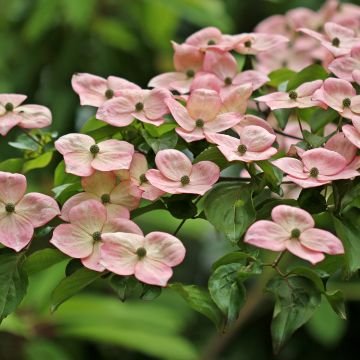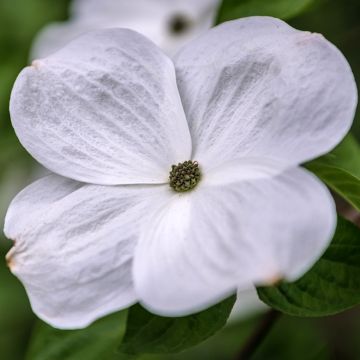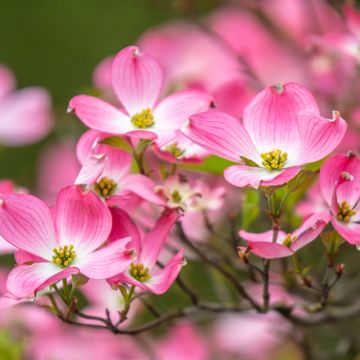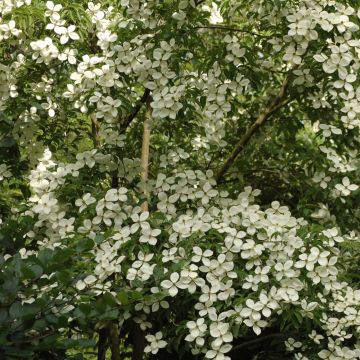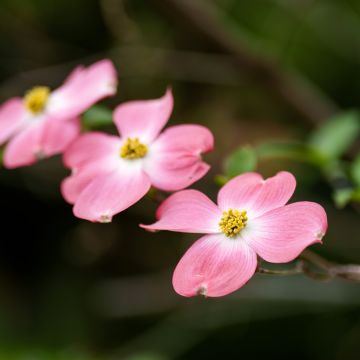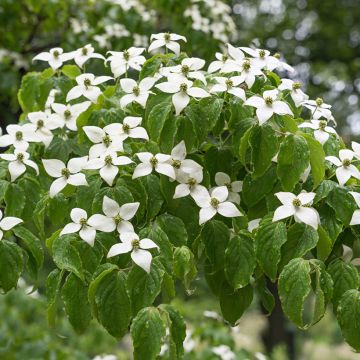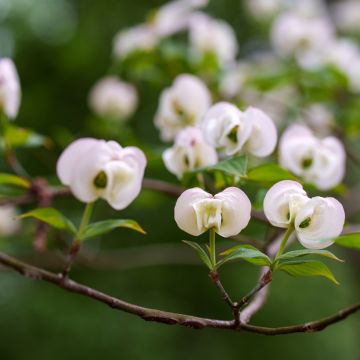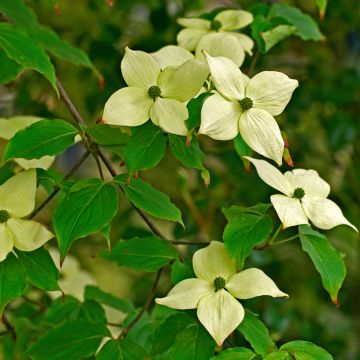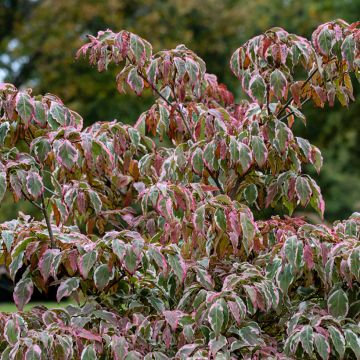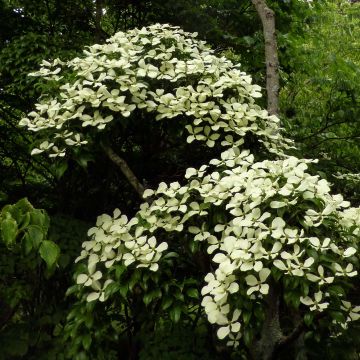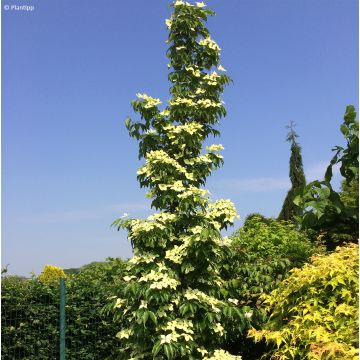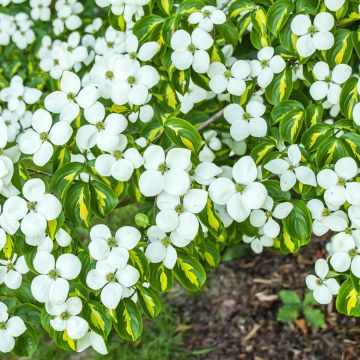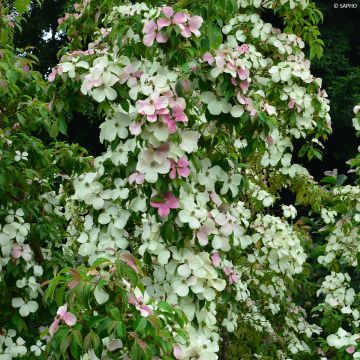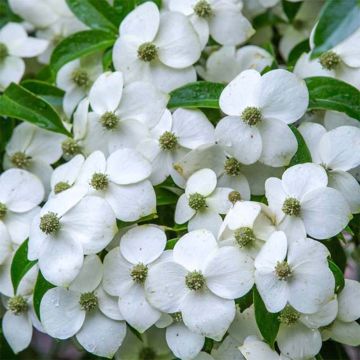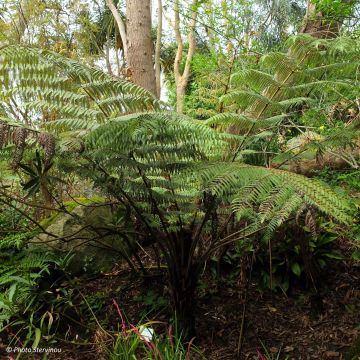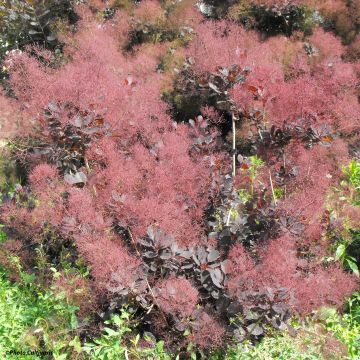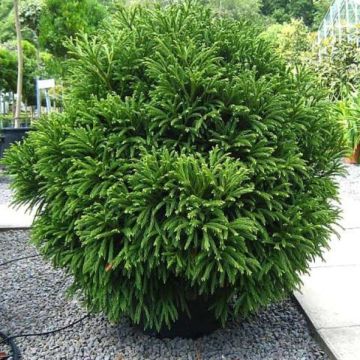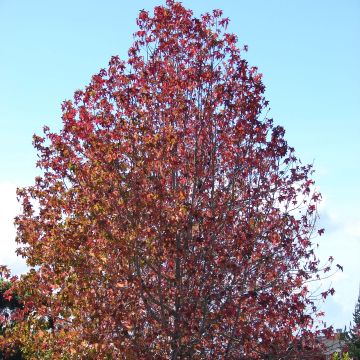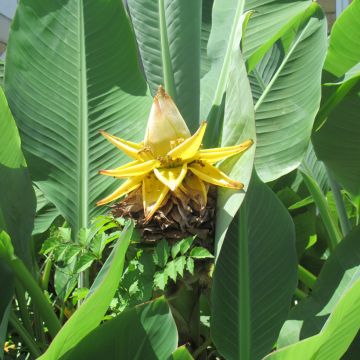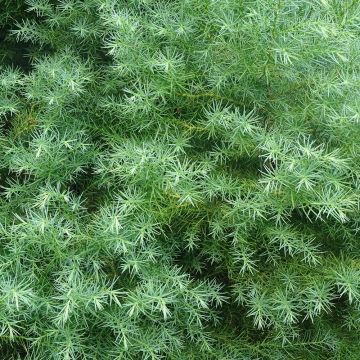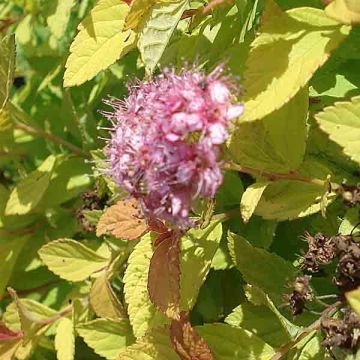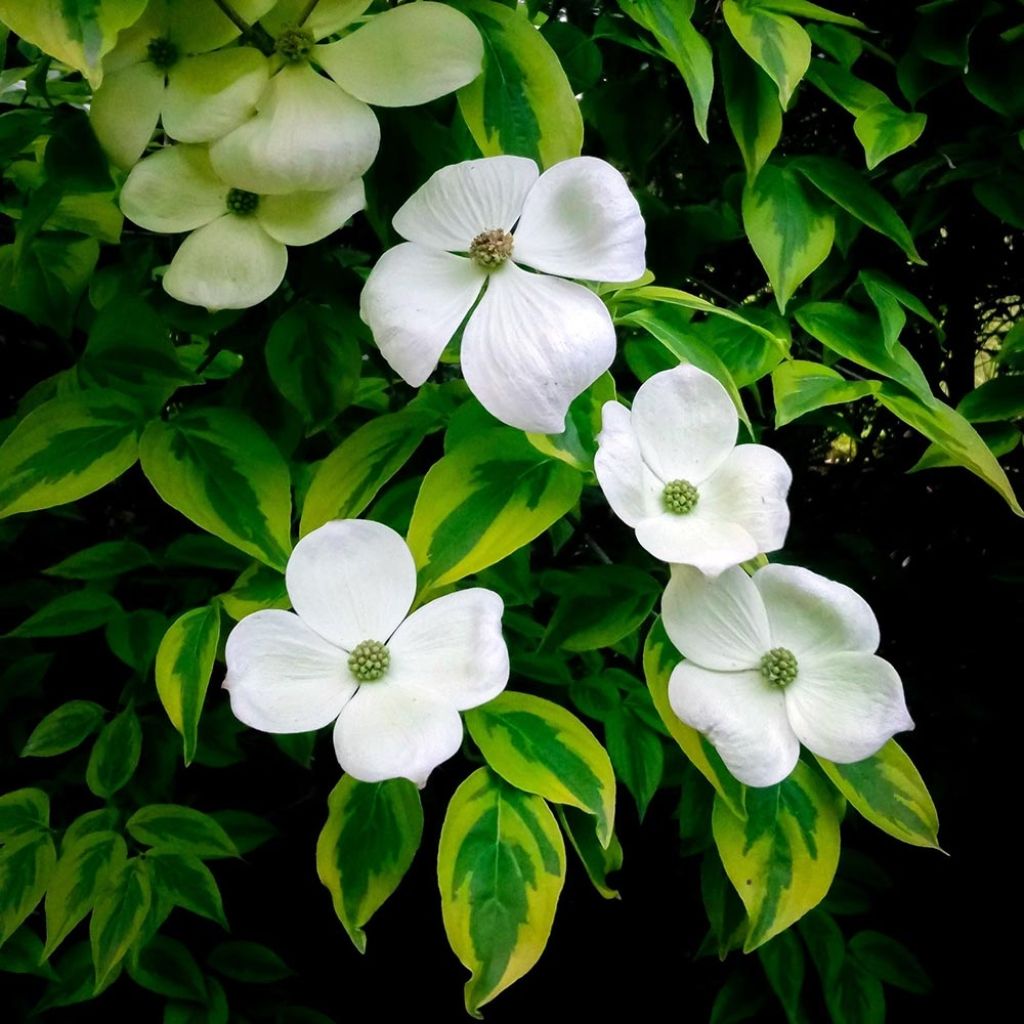

Cornus rutgersensis Celestial Shadow - Rutgers Dogwood
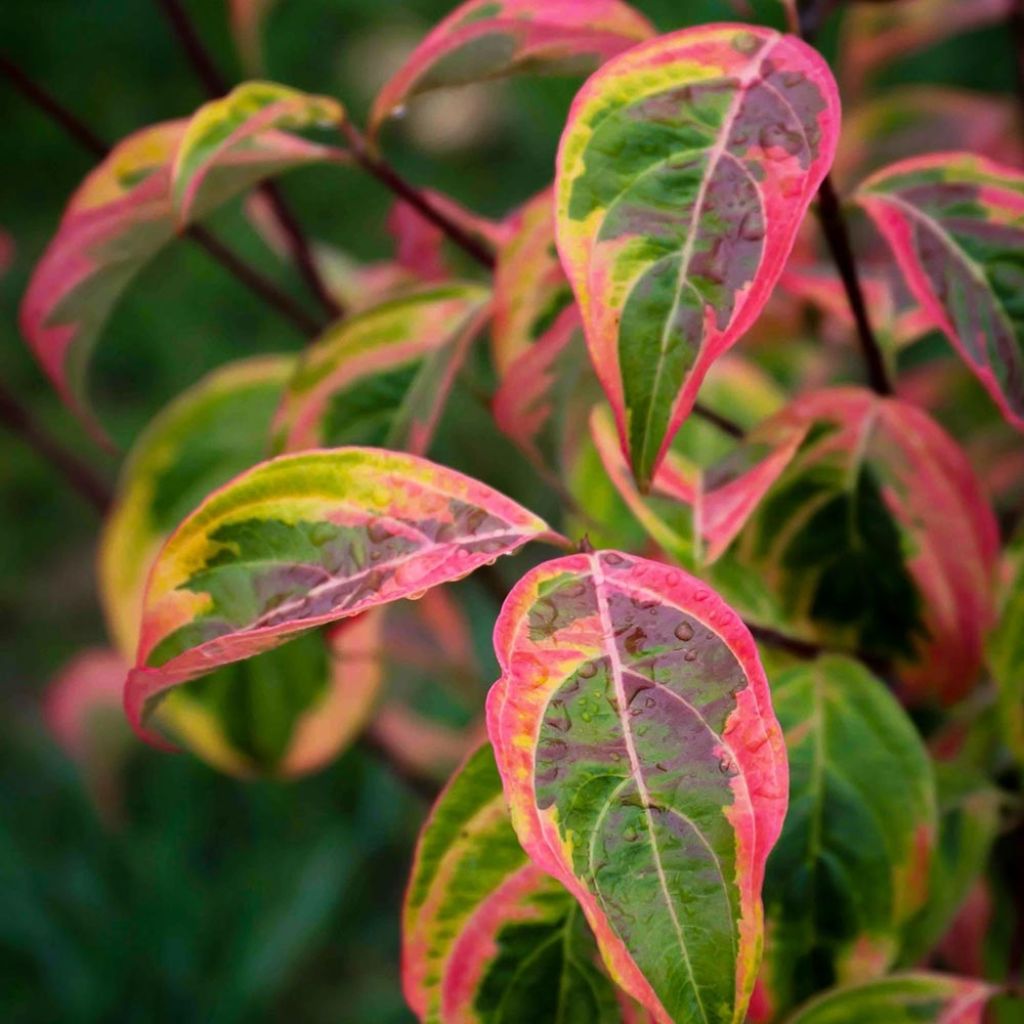

Cornus rutgersensis Celestial Shadow - Rutgers Dogwood
Cornus rutgersensis Celestial Shadow - Rutgers Dogwood
Cornus x rutgersensis Shadow
Rutgers Dogwood, Hybrid Dogwood
Special offer!
Receive a €20 voucher for any order over €90 (excluding delivery costs, credit notes, and plastic-free options)!
1- Add your favorite plants to your cart.
2- Once you have reached €90, confirm your order (you can even choose the delivery date!).
3- As soon as your order is shipped, you will receive an email containing your voucher code, valid for 3 months (90 days).
Your voucher is unique and can only be used once, for any order with a minimum value of €20, excluding delivery costs.
Can be combined with other current offers, non-divisible and non-refundable.
Why not try an alternative variety in stock?
View all →This plant carries a 24 months recovery warranty
More information
We guarantee the quality of our plants for a full growing cycle, and will replace at our expense any plant that fails to recover under normal climatic and planting conditions.
Would this plant suit my garden?
Set up your Plantfit profile →
Description
Cornus x rutgersensis 'Celestial Shadow' is a fascinating mutation of the hybrid dogwood 'Celestial', offering foliage with absolutely incredible colours. This hybrid forms a small tree or large deciduous bush with gracefully spreading habit, making it suitable even for smaller gardens. Its large deciduous foliage, medium green with yellow margins, is very bright and takes on quite unreal shades of pink, fuchsia, and violet as soon as the first cold weather arrives. In late spring, this small tree is covered with a mass of cream-white bracts that sometimes turn a soft pink when mature. It is a rare and original variety that is also endowed with exceptional resistance and vigour. Easy to grow in full sun or partial shade in a good, well-drained, rich, moist, and lime-free garden soil.
Cornus kousa or the Japanese dogwood is a small tree or large bush, native to Japan, China, and Korea. Its graphic silhouette, supported by tiered and horizontal branches, gives it a very Japanese look. The hybrid Cornus florida x kousa 'Celestial Shadow' or Cornus x rutgersensis 'Celestial Shadow' is a mutation of 'Celestial', a cross between C. florida and C. kousa developed at Rutgers University in New Jersey with the aim of obtaining dogwoods that are even more disease-resistant and vigorous. In this sense, the variety is particularly resistant to anthracnose. This cultivar has an upright and spreading habit, reaching about 6m (19ft 8in) in all directions after many years. Despite its slow growth, it is a robust and easy-to-grow bush as long as it enjoys morning or evening sun, not too scorching, and a well-drained, moist, preferably fertile, and lime-free soil.
'Celestial Shadow' blooms in May-June, even on plants aged 3 to 4 years. The bush is adorned with a multitude of large 'flowers', which are actually inflorescences. These are clusters of small true flowers, green, surrounded by 4 oval and pointed bracts, arranged in stars, cream-white in colour, sometimes turning a very soft pink at the end of flowering. The flowers are arranged on the tree as if they were placed on the foliage. The flowers are sterile in this variety, which explains the absence of fruits. The bush has large foliage, medium green with yellow margins, which turns pink, fuchsia, and violet in autumn. The leaves of this Cornus are ovate, strongly veined, slightly closed, somewhat undulate on the edges, and pendulous. They measure between 5 and 8cm (2 and 3.1in) long and are arranged opposite each other along the branches.
Cornus x rutgersensis 'Celestial Shadow' thrives in continental climates with marked summers and winters, but performs very well in milder areas too. In hot regions, it must be protected from the scorching sun, in always moist soil. This Japanese dogwood is still rare in gardens but yet very easy to grow once it has been carefully planted. It is a beautiful attraction on its own and deserves to be planted in isolation, standing out in the middle of a short grass meadow for example. It will also be advantageous at the back of a boder composed of heather or evergreen shrubs with staggered flowering or persistent foliage. Choose, for example, to accompany it with oakleaf or paniculate hydrangeas, Japanese maples with purple foliage, snowberries, a Cercis, a Fothergilla, or a Tetradium daniellii, the bee tree.
Report an error about the product description
Cornus rutgersensis Celestial Shadow - Rutgers Dogwood in pictures
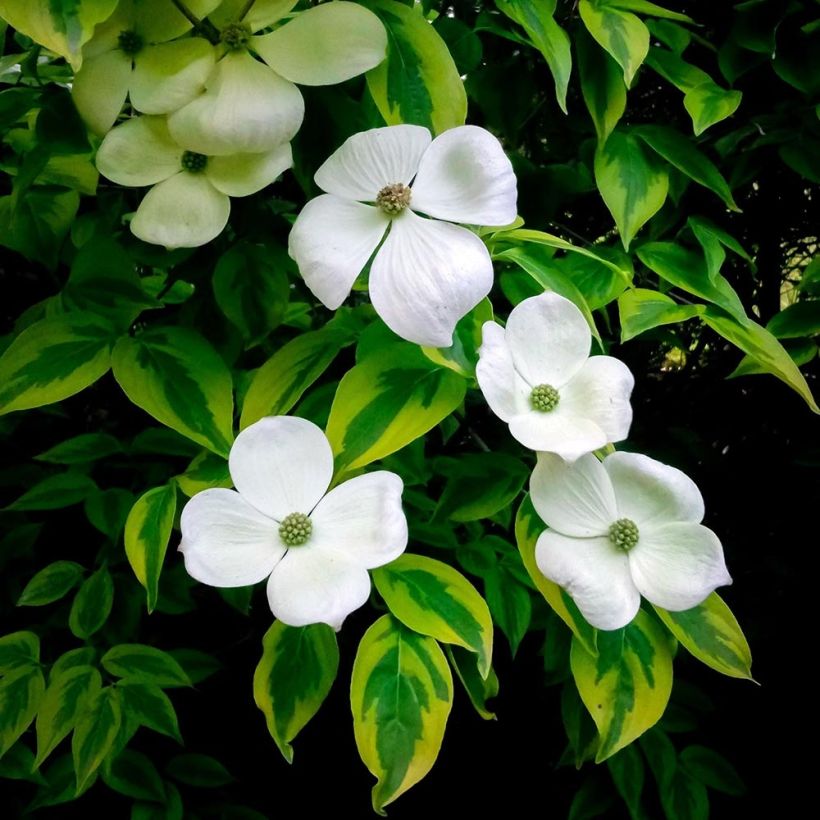

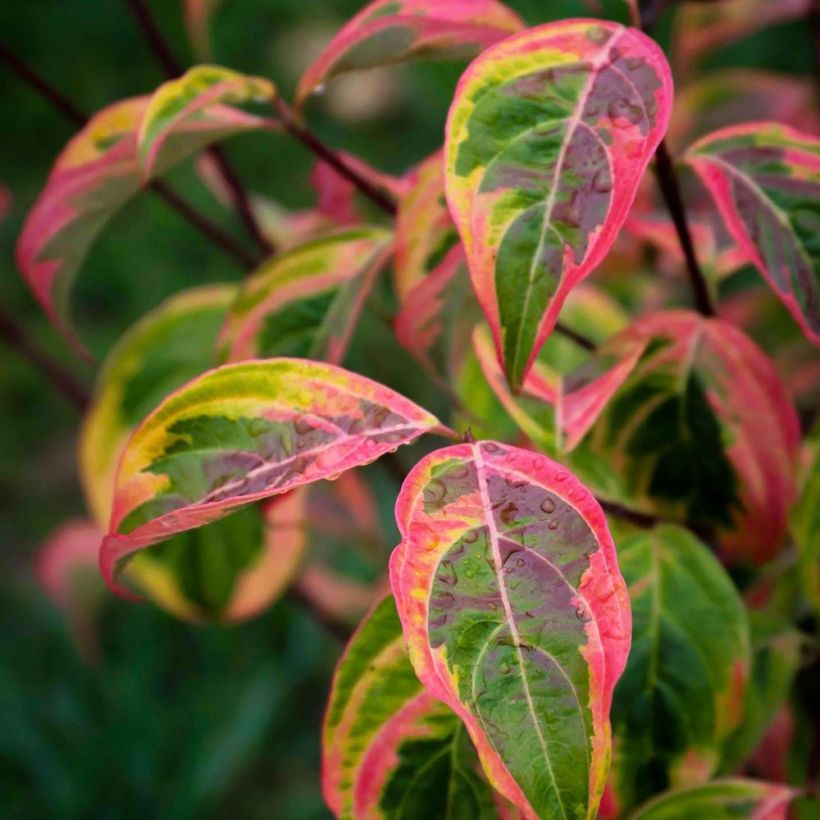

Plant habit
Flowering
Foliage
Botanical data
Cornus
x rutgersensis
Shadow
Cornaceae
Rutgers Dogwood, Hybrid Dogwood
Cultivar or hybrid
Other Flowering Dogwood
View all →Planting and care
Originally from Japan, Korea, and China, Cornus kousa prefer continental climates and temperate zones. Extremely cold temperatures during winter can cause a lack or reduction in flowering. However, this bush is very hardy and can withstand frost of at least -15°. It tolerates sunny exposures in areas with moderately warm summers. In hot regions, it should be planted in a sheltered spot away from the scorching sun.
It appreciates deep, fertile, well-drained soils that are slightly acidic or neutral, but can tolerate some limestone in the soil. It accepts clay soils as long as it is protected from excessive moisture, especially in winter. Plant it in a deep hole lined with clay balls, coarse sand, or gravel to ensure good drainage if necessary, in a very compact soil. Any good, balanced, and soft garden soil is suitable for it. At planting, add compost and leaf soil. Mulching with pine bark will help maintain moisture and promote soil acidity.
Pruning is not obligatory but can be done at the end of winter to remove diseased or dead wood and crossing branches in order to maintain an attractive habit. During the first two years after planting, watering should be regular in summer, afterwards it can manage on its own.
Planting period
Intended location
Care
This item has not been reviewed yet - be the first to leave a review about it.
Similar products
Haven't found what you were looking for?
Hardiness is the lowest winter temperature a plant can endure without suffering serious damage or even dying. However, hardiness is affected by location (a sheltered area, such as a patio), protection (winter cover) and soil type (hardiness is improved by well-drained soil).

Photo Sharing Terms & Conditions
In order to encourage gardeners to interact and share their experiences, Promesse de fleurs offers various media enabling content to be uploaded onto its Site - in particular via the ‘Photo sharing’ module.
The User agrees to refrain from:
- Posting any content that is illegal, prejudicial, insulting, racist, inciteful to hatred, revisionist, contrary to public decency, that infringes on privacy or on the privacy rights of third parties, in particular the publicity rights of persons and goods, intellectual property rights, or the right to privacy.
- Submitting content on behalf of a third party;
- Impersonate the identity of a third party and/or publish any personal information about a third party;
In general, the User undertakes to refrain from any unethical behaviour.
All Content (in particular text, comments, files, images, photos, videos, creative works, etc.), which may be subject to property or intellectual property rights, image or other private rights, shall remain the property of the User, subject to the limited rights granted by the terms of the licence granted by Promesse de fleurs as stated below. Users are at liberty to publish or not to publish such Content on the Site, notably via the ‘Photo Sharing’ facility, and accept that this Content shall be made public and freely accessible, notably on the Internet.
Users further acknowledge, undertake to have ,and guarantee that they hold all necessary rights and permissions to publish such material on the Site, in particular with regard to the legislation in force pertaining to any privacy, property, intellectual property, image, or contractual rights, or rights of any other nature. By publishing such Content on the Site, Users acknowledge accepting full liability as publishers of the Content within the meaning of the law, and grant Promesse de fleurs, free of charge, an inclusive, worldwide licence for the said Content for the entire duration of its publication, including all reproduction, representation, up/downloading, displaying, performing, transmission, and storage rights.
Users also grant permission for their name to be linked to the Content and accept that this link may not always be made available.
By engaging in posting material, Users consent to their Content becoming automatically accessible on the Internet, in particular on other sites and/or blogs and/or web pages of the Promesse de fleurs site, including in particular social pages and the Promesse de fleurs catalogue.
Users may secure the removal of entrusted content free of charge by issuing a simple request via our contact form.
The flowering period indicated on our website applies to countries and regions located in USDA zone 8 (France, the United Kingdom, Ireland, the Netherlands, etc.)
It will vary according to where you live:
- In zones 9 to 10 (Italy, Spain, Greece, etc.), flowering will occur about 2 to 4 weeks earlier.
- In zones 6 to 7 (Germany, Poland, Slovenia, and lower mountainous regions), flowering will be delayed by 2 to 3 weeks.
- In zone 5 (Central Europe, Scandinavia), blooming will be delayed by 3 to 5 weeks.
In temperate climates, pruning of spring-flowering shrubs (forsythia, spireas, etc.) should be done just after flowering.
Pruning of summer-flowering shrubs (Indian Lilac, Perovskia, etc.) can be done in winter or spring.
In cold regions as well as with frost-sensitive plants, avoid pruning too early when severe frosts may still occur.
The planting period indicated on our website applies to countries and regions located in USDA zone 8 (France, United Kingdom, Ireland, Netherlands).
It will vary according to where you live:
- In Mediterranean zones (Marseille, Madrid, Milan, etc.), autumn and winter are the best planting periods.
- In continental zones (Strasbourg, Munich, Vienna, etc.), delay planting by 2 to 3 weeks in spring and bring it forward by 2 to 4 weeks in autumn.
- In mountainous regions (the Alps, Pyrenees, Carpathians, etc.), it is best to plant in late spring (May-June) or late summer (August-September).
The harvesting period indicated on our website applies to countries and regions in USDA zone 8 (France, England, Ireland, the Netherlands).
In colder areas (Scandinavia, Poland, Austria...) fruit and vegetable harvests are likely to be delayed by 3-4 weeks.
In warmer areas (Italy, Spain, Greece, etc.), harvesting will probably take place earlier, depending on weather conditions.
The sowing periods indicated on our website apply to countries and regions within USDA Zone 8 (France, UK, Ireland, Netherlands).
In colder areas (Scandinavia, Poland, Austria...), delay any outdoor sowing by 3-4 weeks, or sow under glass.
In warmer climes (Italy, Spain, Greece, etc.), bring outdoor sowing forward by a few weeks.






























